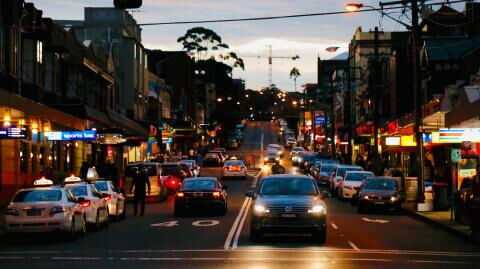The Department for Transport (DfT) has recently called for the evaluation of lane-keeping technology. This type of tech could control a car’s movements and keep it in the lane for extended periods of time and it looks like it could be approved on British roads by Summer.
Discover our latest podcast
Hands-free motorways
This kind of lane-keeping technology could allow for a driver to safely do other tasks such as checking their phones while driving, although they will need to be at the ready to control their car at any given instant.
The DfT made their proposed the new technology to insurance chiefs last week, explaining that many cars have been fitted out with Lane Keeping Assist functions for the last decade which notify the driver when the car is veering out of the lane. But, instead of prompting the driver to remedy the situation, this new technology would automate it instead.
New Teslas and Mercedes S-Class that are set to arrive on the market later this year will be some of the first cars boasting the new technology. Past Teslas also earned themselves a rating of number 2 on the scale of self-driving cars due to a very similar technology that also keeps cars in lane and can even steer around curves. However, drivers are still required to be focusing on the road at all times.
So far the new ALKS or automated lane-keeping systems has already been approved by the United Nations Economic Commission for Europe (UNECE) of which the UK is also a member. However, the technology has only been approved for speeds of up to 37mph (60kmph) meaning it could theoretically be used during motorway traffic jams.
According to the Dft, ALKS could also potentially be approved for speeds of up to 70mph in the UK, which could make long motorway drives a thing of the past.
Mixed opinions
The UK government looked to hear opinions from motor industry professionals about the new technology last year. But the ALKS system has received some very mixed responses, some believing that the tech could be lifesaving, while others think it may pose a greater threat than it lets on.
Mike Hawes, chief executive of the Society for Motor Manufacturers and Traders, said that this new technology could even save lives by preventing 47,000 serious accidents over the space of 10 years.
On the other hand, AA and Thatcham Research, the motor insurance industry's research body, has pointed out a rather big risk in the system highlighting that when facing danger, cars cannot change lanes and are instead put to a halt.
Automated driving technology has also previously led to cases of negligent driving. Back in 2018, one Nottingham man was banned from driving after climbing into the passenger seat of his Tesla while it was on autopilot. Again in February 2020, one car went head-on with a concrete barrier after the driver was too distracted playing video games. The crash also involved some malfunctioning on part of the technology, but had the driver been at the ready to take over the wheel, the accident could have been avoided.
Lillian Greenwood, a Labour MP also on the transport select committee also called attention to the potential increase of negligent drivers:
It simply isn't safe for drivers to ignore the road and do other things while the technology is unable to respond safely to the unexpected.















